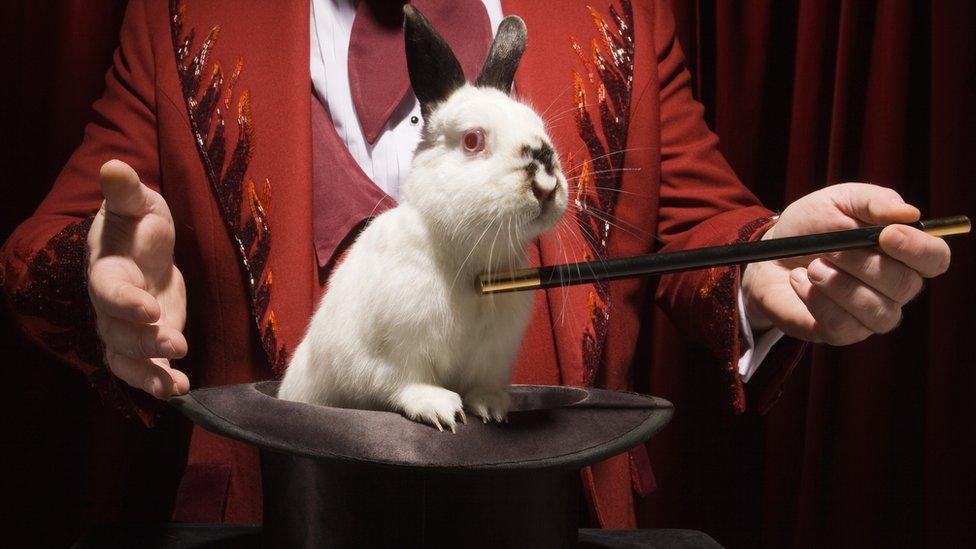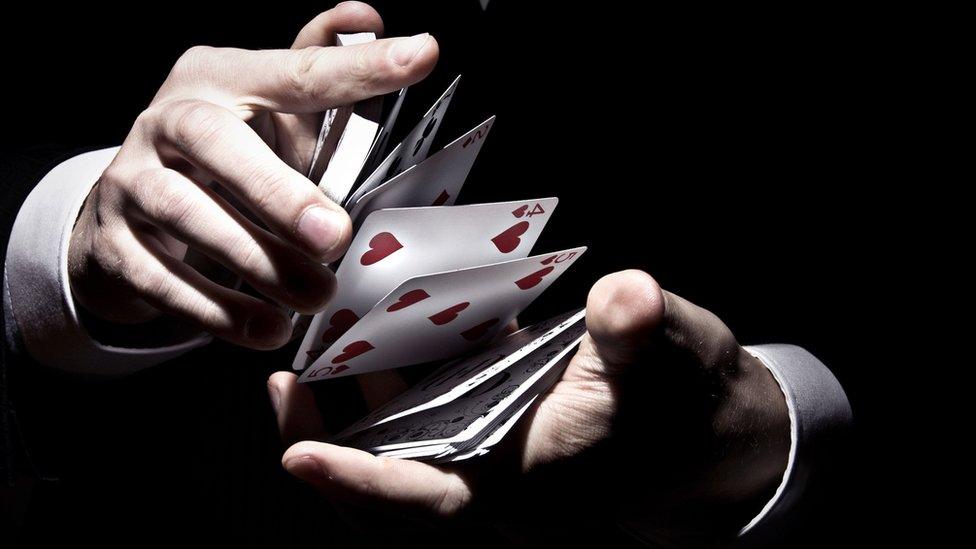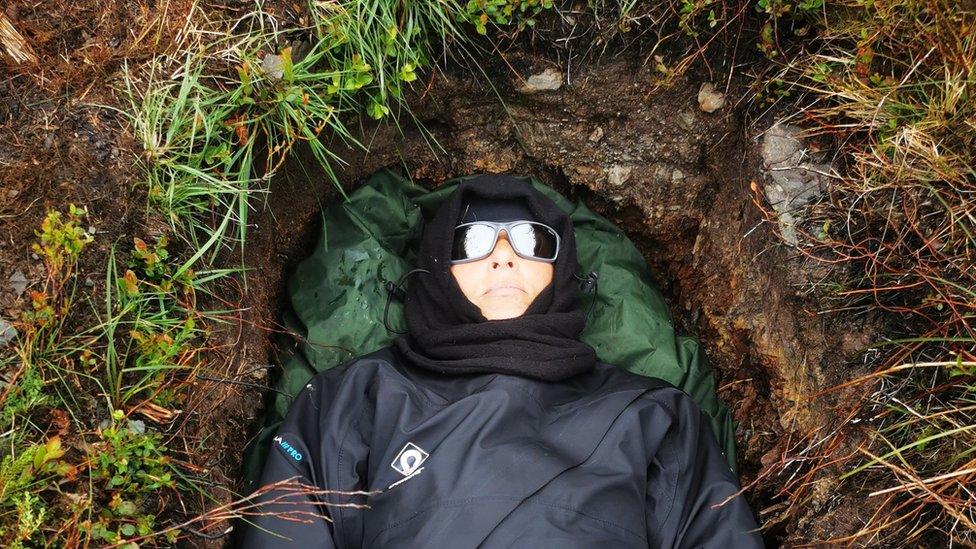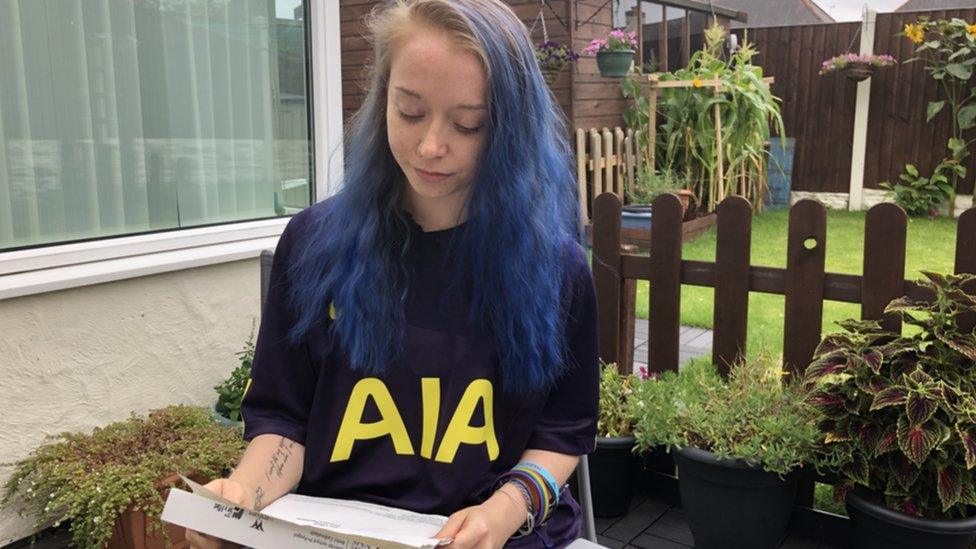Magicians less prone to mental illness - study
- Published

It has been attributed to the "all or nothing" nature of their acts
Whether it is comedians such as Robin Williams or famous painters such as Van Gogh, many creative people have long been known to suffer with their mental-health.
But new research shows that the same is not so of magicians.
According to Aberystwyth University, they' are all but exempt from the inner turmoil experienced by other artists.
And that has been attributed largely to the difficulty of the tricks they perform.
The study, published in the journal BJPsych Open, measured the psychological traits of 195 magicians and 233 people from the general population and compared it with data from other creative groups.
The findings showed that on three key measures of psychosis or degrees of losing contact with reality, magicians are significantly less likely to suffer than artists, musicians and comedians.
They are also less likely to have hallucinations or cognitive disorganisation, which can make it hard to concentrate.
Dr Gil Greengross from Aberystwyth University's psychology department compared their mental health profiles more to those of mathematicians and scientists.
"The results demonstrate that the association between creativity and psychopathology is more complex than previously thought," he said, explaining that "different kinds of creative work could be associated with either high or low psychoticism or autistic traits".
"One thing that distinguishes magicians from most other performing artists is the precision required in their performances," he added.
"Compared to other performers, it is more difficult to overcome errors - magic tricks largely being 'all or nothing' acts that culminate in an 'Aha' moment of surprise and awe."

Magicians scored low on impulsive nonconformity, a trait associated with anti-social behaviour and lower self-control
Dr Greengross added: "Failed magic tricks leave a greater impact than unfunny jokes and are harder to compensate for as they are few and far between.
"In addition to requiring highly technical skills, regardless of the type of magic performed, the high stakes of magic performances make magicians a unique creative group to study amongst all artistic professions."
He said that what also distinguishes magicians from many other creatives is that they "not only create their own magic tricks but also perform them, while most creative groups are either creators or performers".
"For example, poets, writers, composers and choreographers create something that will be consumed or performed by others. In contrast, actors, musicians and dancers perform and interpret the creation of others," he said.
"Magicians, like comedians and singer-songwriters, are one of those rare groups that do both.
"Magicians scored low on impulsive nonconformity, a trait that is associated with anti-social behaviour and lower self-control.
"These traits are valuable for many creative groups such as writers, poets and comedians whose creative acts are often edgy and challenge conventional wisdom."
Related topics
- Published12 August 2023

- Published18 August 2021
